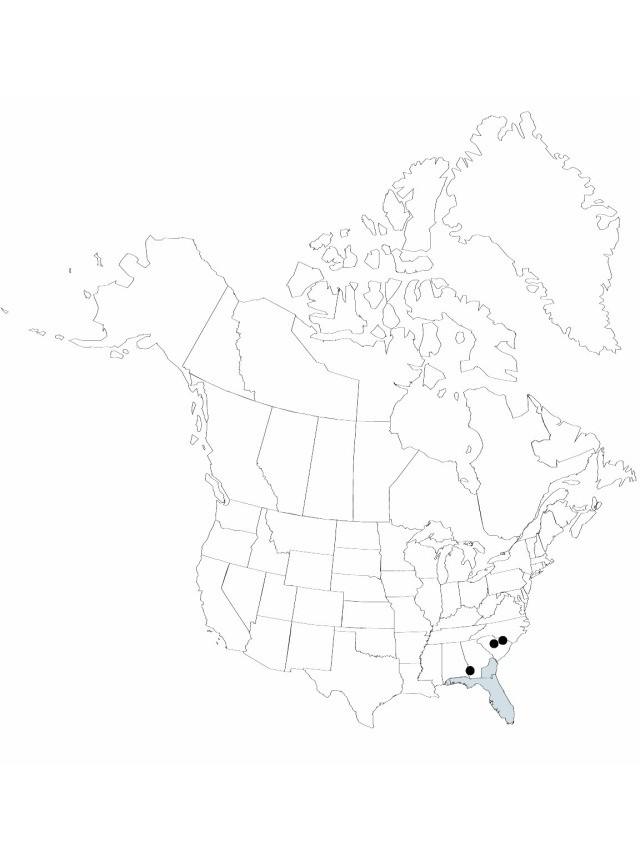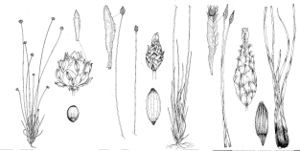Xyris elliottii
Fl. South. U.S. 500. 1860.
Herbs, perennial, densely cespitose, 40–60 (–70) cm. Stems compact. Leaves in narrow fans to erect, 10–30 (–40) cm; sheath base tan to brown, firm; blade mostly green or tinged with maroon, narrowly linear, flattened, plane or slightly twisted, 1–2 (–2.5) mm wide, smooth, margins pale, narrow, incrassate, smooth or papillate. Inflorescences: scape sheaths exceeded by leaves; scapes linear, nearly terete, 0.7–1 mm wide, apically 2-ribbed, ribs smooth or papillate; spikes mostly ovoid or ellipsoid, 6–15 mm, apex acute; fertile bracts 5–6 mm, margins pale, strongly scarious, lacerate, often squarrose, submarginally often reddish, apex low-keeled. Flowers: lateral sepals included or slightly exsert, slightly curved, (5.5–) 6–7 mm, keel concolorous, firm, finely lacerate or apically lacero-fimbriate, not papillate or ciliate; petals unfolding in morning, blade obovate, 5 mm; staminodes bearded. Seeds translucent, ellipsoid, 0.5–0.6 mm, prominently longitudinally lined. 2n = 189.
Phenology: Flowering late spring–summer (all year south).
Habitat: Acid sandy flatwoods, sandy shores, swales in pinelands, bog edges, coastal plain
Distribution

Ala., Fla., Ga., S.C., West Indies, Central America
Discussion
Xyris elliottii with its densely cespitose habit, its glossy brown or red-brown, chaffy leaf sheath bases, and narrow leaves is a part of a complex including Xyris baldwiniana and X. isoetifolia. Usually it is readily distinguished by its taller habit, thicker scapes, and larger spikes, but particularly by its strongly contrasting pale, incrassate leaf blade borders. In peninsular Florida, however, this leaf border is not consistently present, particularly in the narrower-bladed populations (in these, leaf blades may be less than 1 mm wide). Such plants can be distinguished from X. baldwiniana by the staminodial brush, absent in X. baldwiniana, and from X. isoetifolia by the different spike shape, the ragged (rather than entire) bracts, and by a different seed sculpture. Hybrids between X. elliottii and X. brevifolia occur in southern Florida.
Selected References
None.
Lower Taxa
"thin" is not a number.
